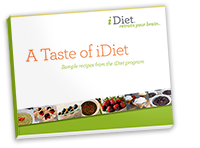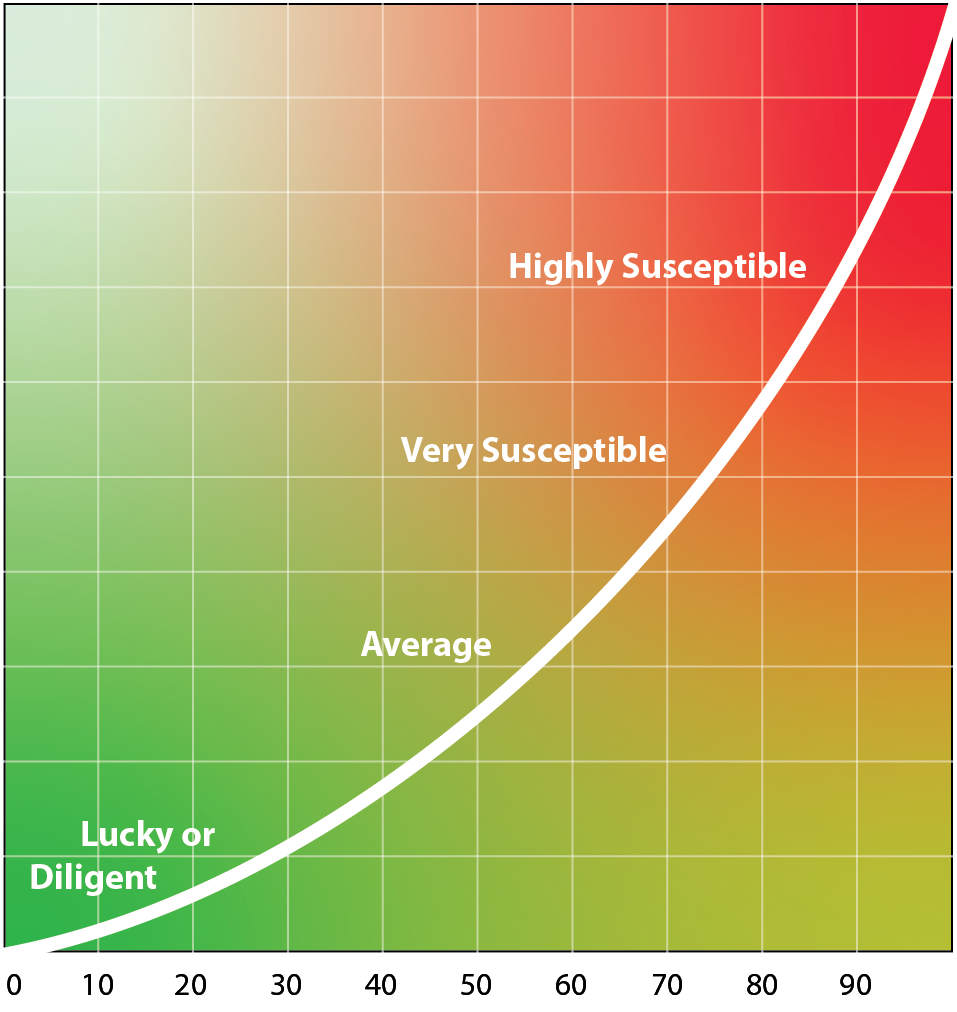Nourishing the Brain and Body

Video clip of neurons connecting — courtesy Dr. Caroline Leaf, a cognitive neurologist.
The Science of Eating for Cognitive Health
This is an age of articles about optimizing everything. And while optimizing your calendar or your cable bill might feel overwhelming, there are simpler things we can do to get more significant dividends.
Neuroscience suggests that a key to a long, healthy life lies in the simplest of daily choices — choosing better foods. It may feel difficult, but it can be made simple.
Your brain is a dynamic organ, capable of growth, change, and learning throughout your life. This includes not only learning new skills or habits but also adapting how we nourish ourselves. What makes this possible is neuroplasticity: the brain’s ability to form new connections and pathways well into adulthood.
The fact that adults grow new neurons every day (about 700 a day), so we can always learn and grow, underscores a hopeful message: we have more control over our health than you may think. Just as you can exercise your brain to improve memory, you can also “teach” your brain to prefer healthy foods. This is what Dr. Roberts’ famous fMRI scan study proved. (read more about that here)
What to Eat for Overall Health
What’s good for your ever-changing brain is good for your whole body, so we’ll start there, at the top. Here are some of the foods and nutrients most important for nurturing that vital organ.
- Omega-3 Fatty Acids
Omega-3s are the building blocks of a healthy brain, essential for maintaining the integrity of brain cells and facilitating communication between them. Regular consumption of omega-3-rich foods like salmon, walnuts, organic eggs, and flaxseeds can help enhance memory, mood, and protect against cognitive decline.
- Antioxidants
Antioxidants combat oxidative stress and inflammation, two enemies of brain health. Berries, dark chocolate, and leafy greens are packed with these powerful compounds, offering protection against age-related cognitive diseases and improving memory and mood.
- B Vitamins
B vitamins, particularly B12, B6, and folate, play critical roles in brain health by reducing levels of homocysteine, a molecule linked to increased risk of neurodegenerative diseases. Incorporate whole grains, eggs, and leafy greens into your diet to support energy production and neurotransmitter synthesis.
- Blood Sugar Control
Maintaining stable blood sugar levels is crucial for cognitive function and mood stability. Focus on low-glycemic foods like legumes, whole grains instead of flour, and a variety of vegetables to prevent the blood sugar spikes and crashes that can both put on fat and damage the capillaries that keep your brain nourished.
- Polyphenols
Polyphenols, found in olive oil, berries, and dark chocolate, not only help maintain memory and cognitive function but also have anti-inflammatory and antioxidant effects that support overall brain health.
- Gut-Brain Axis
The health of your gut microbiome can directly affect your brain health, influencing everything from mood to cognitive function. Probiotic and prebiotic foods, such as yogurt and high-fiber foods, are essential for maintaining a healthy gut-brain connection, as well as enhancing overall immunity, and reducing the chance of many cancers.
- Hydration
Adequate hydration is essential for maintaining concentration and cognitive function. Even mild dehydration can affect your memory, attention, and mood.
- Key Minerals
Magnesium, zinc, and iron are vital for neurotransmitter activity and overall brain function. Nuts, seeds, and whole grains are excellent sources of these essential minerals.
- Dietary Patterns
iDiet is based on dietary patterns like the Mediterranean, DASH, and MIND diets, which emphasize fruits, vegetables, whole grains, and moderate healthy fats. These have shown to help reduce the risk of cognitive decline and support brain health, as well as cardiovascular and overall health.
- Caffeine
In moderation, caffeine can enhance alertness and mood. However, it’s important to balance intake to avoid anxiety and sleep disturbances (generally not more than 2 cups a day, and not after noon for best sleep).
You’ll find all these nutrients and foods (with caffeine optional) in your iDiet EasyPlan menus and recipes.
What Else You Can Do
While nutrition plays a crucial role in supporting brain health, it’s only one piece of the puzzle. A holistic approach to cognitive wellness also involves physical activity, mentally stimulating environments, and avoiding the pitfalls of a sedentary lifestyle that modern conditions often promote. Here are key strategies to enhance cognitive health beyond the dinner plate:
Embrace Physical Activity
Exercise is not just about physical health; it’s a cornerstone of cognitive and overall wellness. Regular physical activity, especially activities like walking, dancing, or balance-oriented activities, can significantly boost neurogenesis—the creation of new brain cells. Muscle-building also increases the release of neurotrophic factors, such as BDNF (Brain-Derived Neurotrophic Factor), which supports brain plasticity, memory, and learning. Aim for at least 150 minutes of moderate-intensity activities per week to enjoy these benefits.
Seek Enriched Environments
Our brains thrive on novelty, complexity, and challenge. Engaging in things that stimulate the senses and the mind can enhance mood and delay cognitive decline. This can be as simple as taking up a new hobby, learning a new language, or traveling to new places. Even at home, you can create a brain-healthy environment by reading, solving puzzles, or playing a musical instrument. These activities provide the mental stimulation necessary for maintaining a sharp and resilient brain.
Stop Sitting
Modern lifestyles often involve prolonged periods of sitting, whether for work, commuting, or leisure activities like watching TV. However, a sedentary lifestyle is linked to an increased risk of cognitive decline, depression and anxiety. To counteract this, make a conscious effort to break up long periods of sitting with short activity breaks. Stand up, stretch, or take a brief walk every hour. Incorporating standing desks or active meetings can also help reduce sedentary time.
Social Connections
Social interaction is not only fun but also beneficial for mental and overall health. Engaging in meaningful relationships and community activities can boost emotional well-being and cognitive resilience. Social engagement has been shown to boost mood, delay memory decline and protect against dementia. Make time for family and friends, join clubs or groups that share your interests, or volunteer in your community to stay socially active.
Prioritize Sleep
Quality sleep is essential for cognitive function and emotional health. During sleep, the brain consolidates memories, processes emotions, and clears toxins. Aim for 7-9 hours of quality sleep per night, and maintain a consistent sleep schedule. Avoid screens before bedtime, and create a relaxing bedtime routine to support restful sleep.
Manage Stress
Chronic stress can impair brain function and contribute to cognitive decline, depression, and overeating. Incorporating stress-reduction techniques such as mindfulness, meditation, yoga, or deep-breathing exercises into your daily routine can help manage stress levels and support overall health.
Time to Make a Move
Your health is influenced by a combination of factors, including diet, physical activity, social engagement, attitude, and mental stimulation. Adopt a comprehensive approach that encompasses these elements, to support your overall health and enhance your brain’s capacity for growth, learning, and resilience throughout your life. And you can leverage that capacity for learning to make better choices, producing a virtuous upward spiral. It’s never too late to start making changes that can have a profound impact on your cognitive and overall well-being.
What we do and what we eat both profoundly affect our overall health, making nutrition a pivotal component of your health strategy. iDiet, based in best evidence-based — and practical — nutrition practices, can help manage weight even while improving the nutrient quality of your diet. We have options designed for all lifestyles.
Register Today
Choose the program that’s right for you.

 Yes! I want to receive a 38-page cookbook, and be informed of upcoming classes. No obligation, instant download.
Yes! I want to receive a 38-page cookbook, and be informed of upcoming classes. No obligation, instant download. 